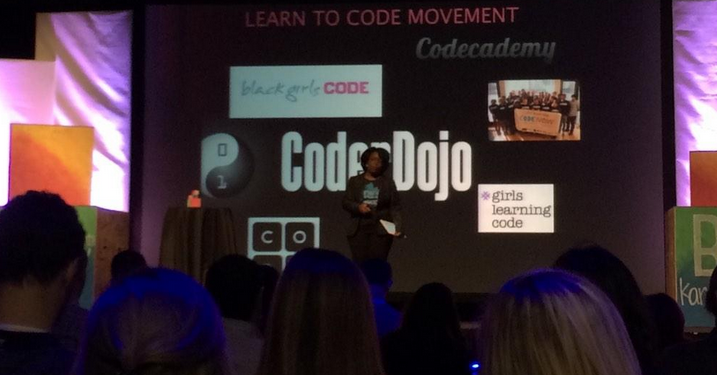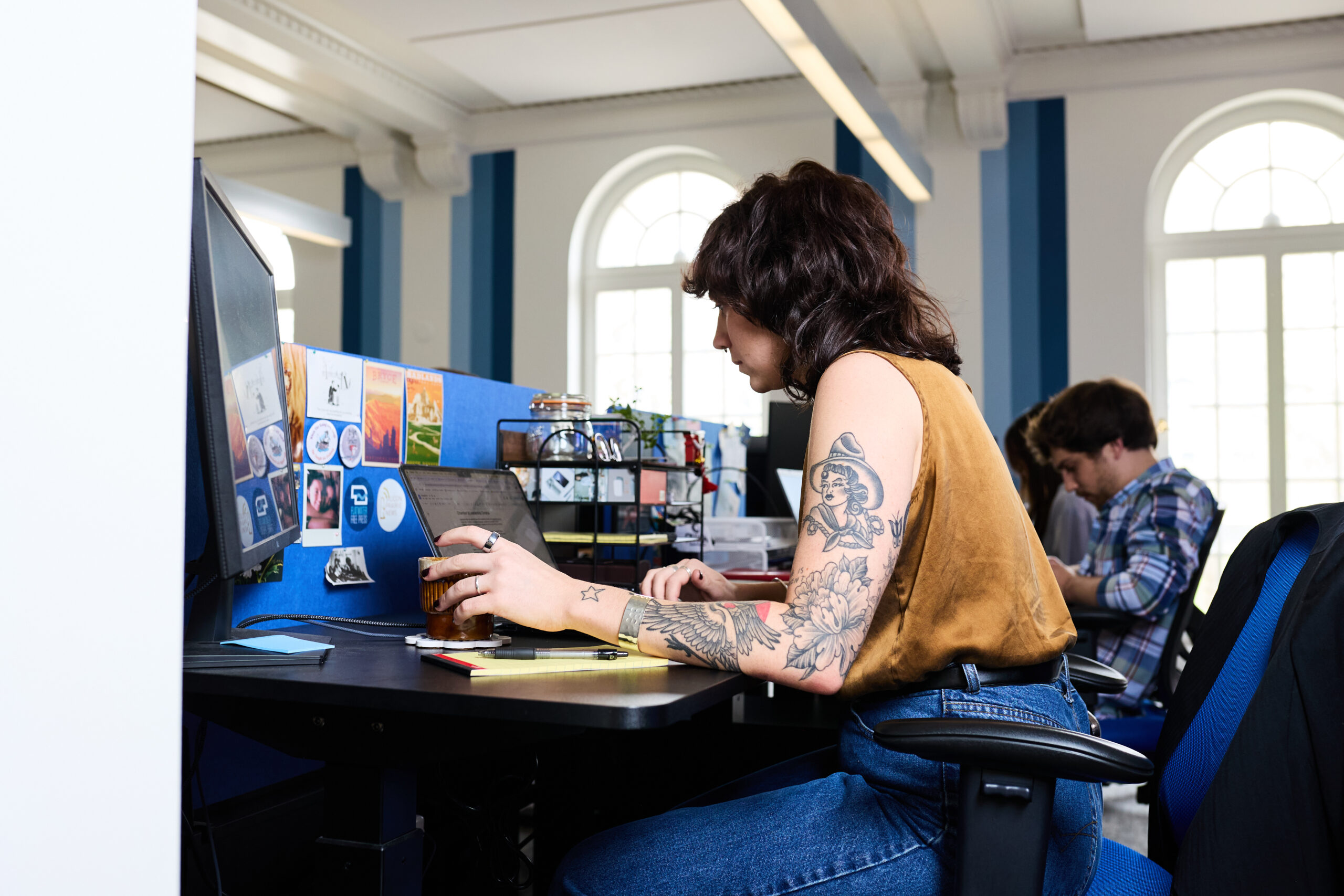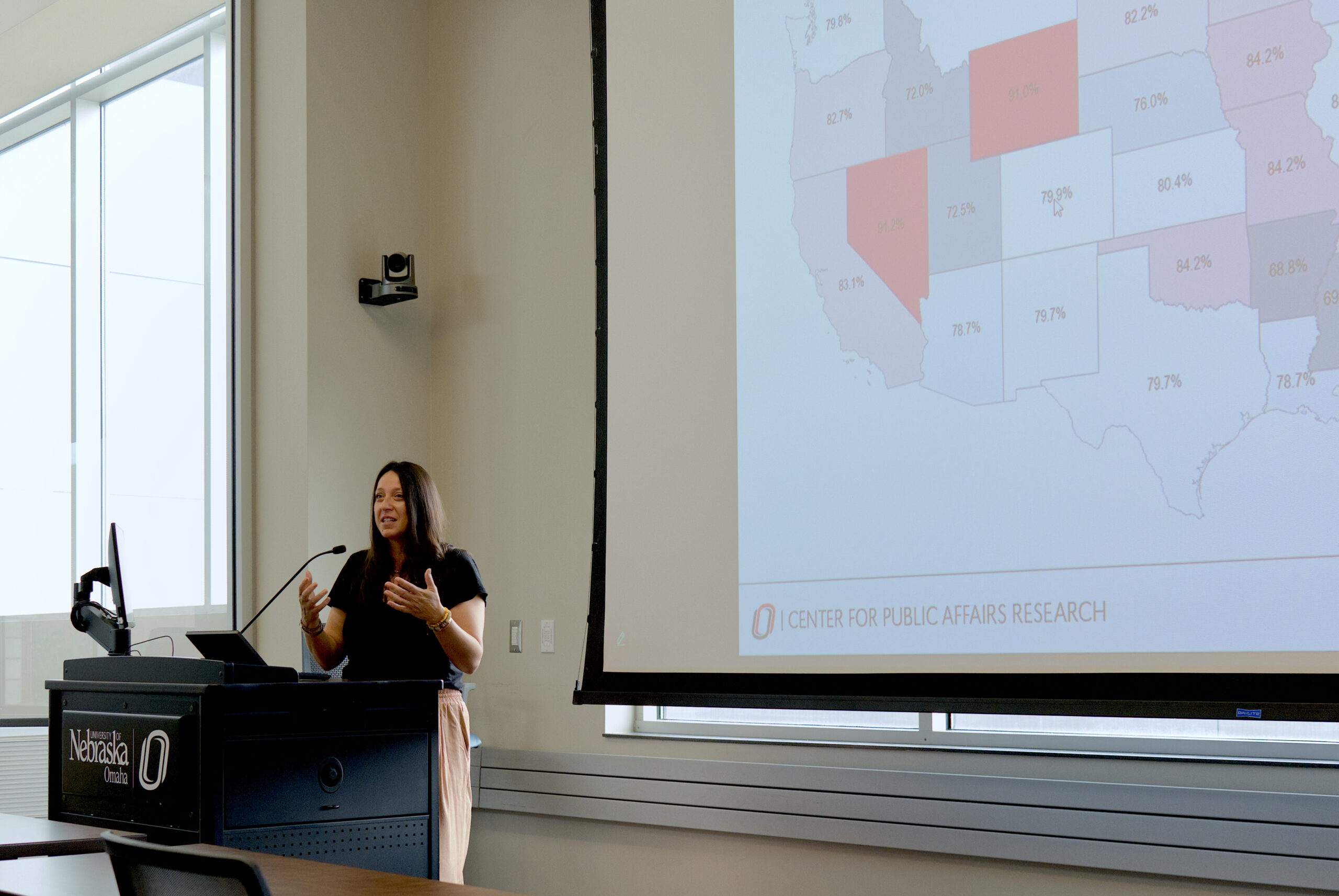![]() All of the Big Kansas City content wouldn’t be possible without Pinsight Media+. They’re a pioneer in mobile media with deep entrepreneurial roots. Their team brings leadership, experience and global awareness to Kansas City’s booming startup community. To learn more or talk with our friends at Pinsight, email Serge Bushman, sbushman@pinsightmedia.com.
All of the Big Kansas City content wouldn’t be possible without Pinsight Media+. They’re a pioneer in mobile media with deep entrepreneurial roots. Their team brings leadership, experience and global awareness to Kansas City’s booming startup community. To learn more or talk with our friends at Pinsight, email Serge Bushman, sbushman@pinsightmedia.com.
Kimberly Bryant, founder and executive director of Silicon Valley-based Black Girls Code, wants to literally change the faces of the tech industry.
Bryant founded Black Girls Code in 2011 to introduce programming and technology to girls of color, hoping to create a more diverse next generation of tech entrepreneurs. Her experience as a minority in the field of electrical engineering gave her a personal stake in the cause, but the deep motivation to provide the opportunity derived from her daughter.
“I was frustrated that my daughter was playing video games all the time, and I didn’t want her to continue consuming technology unless she was going to be a creator of it,” Bryant said.
When Bryant looked at those opportunities for her daughter to get her feet wet, she didn’t find organizations that tapped into interested girls to get involved in computer science. She tracked down a coding summer camp at Stanford University, and her daughter’s interest was ignited. But in a class of 40 students, Bryant’s daughter was one of only three girls and the only student of color.
“This was discouraging to me because it was replicating my path as an engineer and I didn’t want that same experience for my daughter,” Bryant said. “I had to create the opportunity for my daughter to have a different opportunity.”
Bryant wanted to get to the bottom of the minority vacuum in the tech industry, and she found a few startling facts embedded in the educational system.
• African American women have the lowest graduation rate other than Native Americans.
• More than half of the girls are interested in computer science in middle school, but by the time they get to high school, less than one percent express that interest.
• Currently less than 18 percent of women are receiving degrees in computer science, and women of color are a very small percentage of that.
“Somewhere along that path we’re losing them,” said Bryant, “but the thing that keeps me up at night are the personal stories I hear from young women in college who are told ‘maybe you’re just not cut out to be a computer scientist.’ Before they even get to step in the door to pursue a career that might interest them they’re told they’re not suited.”
Bryant wanted to create something that teaches girls of color to code in hopes of developing a long-lasting interest in a field that currently looks very male and very white. Black Girls Code delivers technology workshops to girls in a way that’s accessible to girls in underrepresented communities.
Now three years in, one of Bryant’s crowning moments was when three of her students, ages 10 and 14, appeared at the 2013 Lean Startup Conference to talk about two mobile apps they developed to address hunger in Oakland, Calif.
“It shows the work [Black Girls Code] has done to teach girls how to code and build technology, but beyond that it showed that our program was about teaching girls to be social changers in their communities and utilize tech to perform that social change.”
To date, Black Girls Code serves 3,000 girls in seven U.S. chapters, one in Johannesburg, South Africa, and soon in Uganda, all serving more than 3,000 girls. Bryant said her long-term goal is to train 1 million girls of color to code by 2040.
“We don’t want them to just create the next greatest app,” said Bryant. “We want them to use computational thinking to work on the big solutions and the big problems that will change the course of the world we see today.”
Credits: Photo by Jessie Bauters.





